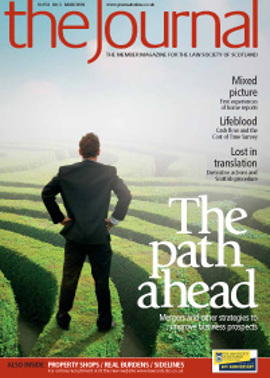A new regime for financial advice

The financial advice market is set to change as a result of the Financial Services Authority’s Retail Distribution Review, which was completed in late 2008. This was designed to clarify, for the benefit of consumers, the distinction between independent advice and product sales and to raise standards of competence by imposing a higher level of minimum qualification.
In seeking to differentiate financial advisers who are truly independent, the FSA gave tangible support to a top tier of advisers who, of their own volition, have moved to fee-based remuneration and attained advanced qualifications. In its early discussion documents the FSA used the word professional to describe these advisers, and although this description was not retained, it remains apt. The benefits of their business model have become apparent during the recent vicious market downturn, in that these advisers, whose businesses have been founded on client relationships rather than transactions, have been busier than ever, whereas product sales have plummeted.
The expectation is that many salespeople will either be flushed out of the market by the time the changes arising from the FSA review have been implemented, in 2012, or will turn for refuge to financial advice networks, or national sales organisations, or the banks (which many commentators feel have been treated kindly by the review). There will be natural wastage (the average age of financial advisers is over 50); some advisers will be unwilling to work for the new qualifications; and others will be unable to bear the increased capital adequacy requirements which are also proposed.
So, where does this leave law firms which are authorised to conduct financial services business? The numbers have been declining, particularly among those who are heavily dependent on mortgage business, but the legal profession continues to enjoy privileged status under the FSA, being exempt from both the FSA’s capital adequacy requirements and the Financial Services Compensation Scheme. Some firms are even finding that, having become accustomed to the relatively onerous demands of FSA compliance, these can in fact prove beneficial in terms of business efficiency and client care. The change with which they will have to come to terms is that they will be expected to conform to the new criteria for independent financial advisers, by accounting to clients for any commissions received and knuckling down to the new qualification requirements.
Firms which are concerned about the regulatory demands of the FSA might consider establishing referral relationships with IFAs; but they need to be aware that the practice of rewarding client referrals by sharing commission payments is fast dying out, and the more responsible firms are now basing their selection of IFA partners on the quality of the technical advice provided and the potential for a two-way flow of business. In any event, solicitors’ duty of independence means that they should be confining their referrals to fee-based IFAs, so as to guard against commission bias.
Additional options will arise from the forthcoming Legal Profession (Scotland) Bill, which will enable solicitors to practise in combination with non-solicitors. A number of possible scenarios commend themselves here. A likely example is the one-stop high street shop, offering not just legal advice and estate agency services, but also surveying, mortgages and insurances.
Firms with higher net worth clients, by contrast, might consider providing an integrated “family office” service based on trust, tax and investment. There are already notable examples of this model, simply waiting for the green light to bring their non-solicitors into equity.
Firms are in fact able to anticipate the bill by establishing joint ventures with IFA firms, and a number are already doing so. The caveat is that solicitors are not permitted to practise law through a JV, but they are able to participate in equity, drawing remuneration in the form of dividends, and responsibility for FSA compliance can effectively be delegated to the IFA partners. Typically, the JV will be a subset of an established IFA firm and will be regarded by the FSA as an appointed representative of the IFA. Some of the more forward-looking solicitor firms are regarding JVs as a means of aligning with preferred partners for what could develop into multi-disciplinary practices.
Whichever approach firms choose to adopt, it seems clear that the professional firm of the future will be one which is defined by reference to the needs of clients rather than the accident of a common qualification. The opportunity now presents itself for solicitors to regain their historic role of co-ordinators of their clients’ affairs and incidentally to address one of the flaws in solicitors’ current business model, namely the over-reliance on transactional work.
In this respect, professional financial advice based on ongoing client relationships is likely to be a vital element in the business mix.
In this issue
- Corporate governance in family businesses
- Que será, será….
- A matter of form in administrations
- You may have to be mad to work here
- No standing still
- A new regime for financial advice
- United we stand?
- Watch your local trend
- Cash flow: the five essentials
- Secure our future
- Opportunity lost?
- The kilt doesn't quite fit
- We can work it out
- Asset in recovery
- Law reform update
- Be your own money saving expert
- Skeleton crew
- Ask Ash
- Only half a step
- Learning experience
- Too late, too late?
- Variations and the three year rule
- Fruits of their labours
- Death of a claim
- All part of the game
- Scottish Solicitors' Discipline Tribunal
- Website review
- Book reviews
- Just whistle while you work
- Performance review






